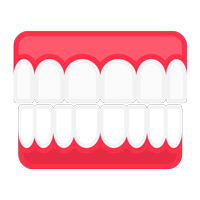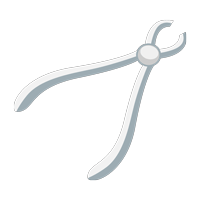Complete Dental Services

Invisalign
Invisalign treatment is the clear alternative to metal braces for kids, teens, and adults.

Veneers
A veneer is a permanent change used to correct tooth imperfections, such as stained or chipped teeth.

Ozone Therapy
Ozone dental treatment is a natural, non-invasive therapy for many common dental problems.

Zoom Whitening

Root Canal

Crowns & Bridges

Implants

Holistic Approach

Extractions

Periodontal Treatment

Dentures & Partials

Fillings
Frequently asked questions
Why should I go to the dentist regularly?
Tooth decay often does not hurt until it gets close to the nerve of the tooth. It is not uncommon to see a patient with a huge cavity who has never felt a thing. The dentist can usually detect a cavity 3-4 years before it develops any symptoms. This early detection can help you prevent root canal treatment.
Why should I floss, isn't brushing enough?
Ask your dentist to show you the proper way to floss. You will both notice the difference at the next cleaning appointment.
How can I prevent cavities?
Watch the sugar you eat. There is sugar in candy, fruits, crackers and chips. These are the foods that the bacteria in your mouth like best. Be mindful of foods like raisins and peanut butter that stick to your teeth. They can provide a constant supply for the bacteria eating into your teeth. Try to minimize the times during the day when sweet items are eaten and brush your teeth afterwards.
If you cannot brush after a meal, rinse your mouth with water – which can help to remove food from your teeth. Chewing sugarless gum after a meal can also help. Chewing deskulates the flow of your saliva which acts as a natural plaque-fighting substance. And do not forget your regular dental visits. Good dental habits will go a long way toward a no-cavity visit.
Why does the dentist take X-rays?
small areas of decay between the teeth or below existing restorations (fillings)
infections in the bone
periodontal (gum) disease
abscesses or cysts
developmental abnormalities
some types of tumors
Finding and treating dental problems at an early stage can save time, money and often unnecessary discomfort. X-rays can detect damage to oral structures not visible during a regular exam. If you have a hidden tumor, X-rays may even help save your life. Dentist will evaluate your need for X-rays based on the conditions present in development. There are many benefits to having X-rays taken. Any additional questions or concerns should be discussed with your dentist.
What is fluoride and why is it important to dental health?
The lack of exposure to fluoride places individuals of any age at risk for dental decay. Fluoride is important to dental health because it helps prevent tooth decay by making your tooth enamel more resistant to acid attacks from plaque bacteria in your mouth.
Studies have shown that children who consumed fluoridated water from birth had less dental decay. Fluoride can reverse early decay and help prevent osteoporosis, a disease that causes degenerative bone loss. Talk to your dentist or dental hygienist about whether you’re getting the daily amount of fluoride you need.
I knocked out a tooth, can it be saved?
Oral injuries are often painful, and should be treated by a dentist as soon as possible. If you have knocked out a tooth, these tips may be able to save it:
- Rinse, do not scrub, the tooth to remove dirt or debris
- Place the clean tooth in your mouth between your cheek and gum or under your tongue
- Do not attempt to replace the tooth into the socket as this could cause further damage
- Get to the dentist. Successful re-implantation is possible only when treatment is performed promptly
- If it is not possible to store the tooth in the mouth of the injured person, wrap the tooth in a clean cloth or gauze and immerse it in milk.
What causes morning breath?
Chronic, long-term mouth odor can be a sign of more serious illness. See your dentist if this is a concern.
What can I do about sensitive teeth?
Ask the friendly staff at Mountain Dental for more information on sensitive teeth.

